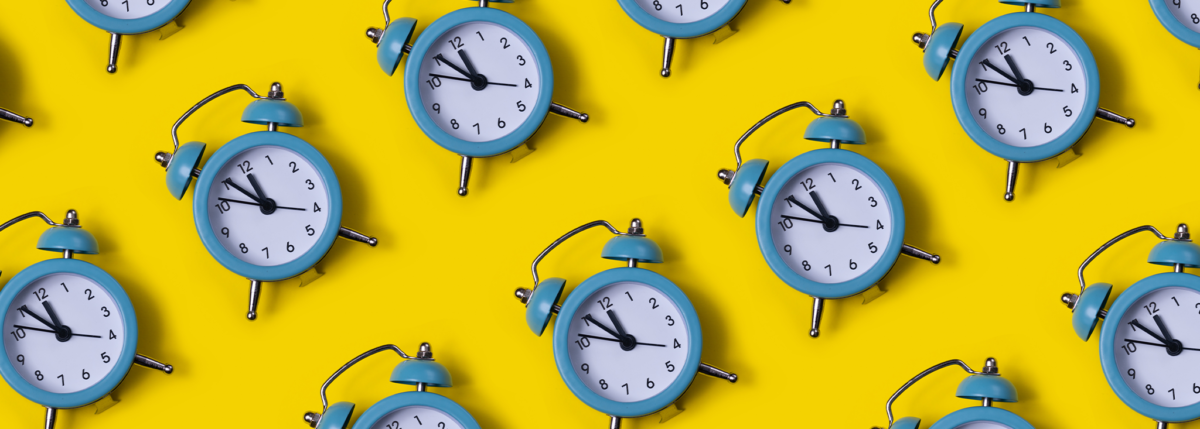Best Times of Day to Check Your Blood Sugar
Your blood sugar can change constantly throughout the day. Checking your blood sugar with test-strips or an FBGM (flash blood glucose monitor) several times throughout the day is just as important as taking your medications.
For example, checking your blood sugar before breakfast tells you how well your body is managing during the eight hours you were asleep, but it doesn’t tell you how well your body handles meals.
Here, we’ll look at the best times to check your blood sugar for the most information about your diabetes management!
Fasting blood sugar (as soon as you wake up, before breakfast)
Your fasting blood sugar level is the best starting place, because you weren’t eating for the eight hours you were asleep.
Waking up with a high blood sugar level means your body is struggling to manage safe levels even while you’re asleep.
A high fasting blood sugar level in the morning could suggest:
- What you ate or drank before bed might’ve been more than your body could handle on your current diabetes management regimen.
- Your body may need some extra help from a diabetes medication.
- Your current diabetes medications may need a change in dosage.
- Your current diabetes medication may not be the right fit for you.
- It’s time to try a different type of diabetes medication.
- Your overall insulin production or insulin resistance level has changed and your body needs more support from a new or current medication.
A low fasting blood sugar level in the morning could suggest:
- You’re getting too much of a certain diabetes medication (including the insulin you took for a meal you ate right before bed or your background insulin dose).
- Your insulin sensitivity or insulin production has improved, which means your medication dosages need to be adjusted by your healthcare team.
Talk to your healthcare team about making any adjustments to your diabetes regimen to help you achieve your blood sugar goals.
Before, during & after exercise
Checking your blood sugar around exercise is especially important for people who take insulin or other diabetes medications that can cause low blood sugar. Remember to always carry fast-acting carbohydrates with you while exercising.
Especially if you’re new to exercise and fitting it into your diabetes management routine, it’s extremely important to check your blood sugar before, during and after exercise to identify and prevent low blood sugars.
A low blood sugar level before, during, or after exercising:
- You’re getting too much of a certain diabetes medication (including the insulin you take for meals or your background insulin dose).
- Your insulin sensitivity or insulin production has improved, which means your medication dosages need to be adjusted by your healthcare team.
A high blood sugar level during, or after exercising can happen, too, although it’s less common in type 2 diabetes. Certain types of exercise— like weightlifting, spinning, sprinting—can trigger your liver to release stored sugar for extra fuel.
Talk to your healthcare team about making any adjustments to your diabetes regimen to help you achieve your blood sugar goals.
Right before lunch or dinner
Checking your blood sugar before your next meal can tell you two things:
- How well your body and/or medication dosages handled your last meal
- How well your body and/or medication dosages handled your blood sugar in the last few hours without food being digested.
Keep in mind that some meals take longer to digest than others. High-fat meals that are also high in carbohydrates (like pizza, Chinese food, cake with buttercream frosting, tacos, etc.) can take many hours to digest, affecting your blood sugar for many hours, too.
A high blood sugar level before lunch or dinner could suggest:
- What you ate or drank at your last meal was more than your body could handle on your current diabetes management regimen.
- Your body may need some extra help from a diabetes medication.
- Your current diabetes medications may need a change in dosage.
- Your current diabetes medication may not be the right fit for you.
- It’s time to try a different type of diabetes medication.
- Your overall insulin production or insulin resistance level has changed and your body needs more support from a new or current medication.
A low blood sugar level before your next meal could suggest:
- You’re getting too much of a certain diabetes medication (including the insulin you took for the last meal you ate or your background insulin dose).
- Your insulin sensitivity or insulin production has improved, which means your medication dosages need to be adjusted by your healthcare team.
Talk to your healthcare team about making any adjustments to your diabetes regimen to help you achieve your blood sugar goals.
2 hours after eating a meal
Checking your blood sugar approximately one-to-two hours after eating is hugely important, because it tells you if your body has the tools it needs in order to handle your meals. Being consistently higher or lower than your goal range after eating can tell you some very important and clear things about your current diabetes management regimen.
A high blood sugar level one-to-hours hours after eating could suggest:
- What you ate or drank at your last meal was more than your body could handle on your current diabetes management regimen.
- Your body may need some extra help from a diabetes medication.
- Your current diabetes medications may need a change in dosage.
- Your current diabetes medication may not be the right fit for you.
- It’s time to try a different type of diabetes medication.
A low blood sugar level in the hours after eating could suggest:
- You’re getting too much of a certain diabetes medication (including the insulin you took for the meal you just ate).
- Your insulin sensitivity or insulin production has improved, which means your medication dosages need to be adjusted by your healthcare team.
Talk to your healthcare team about making any adjustments to your diabetes regimen to help you achieve your blood sugar goals.
Right before bed
You’re about to spend eight hours sleeping! Those eight hours make up one third of your day’s blood sugar levels, which means they have a big impact on your overall diabetes health, your next A1c and your ability to be in your goal range the next morning.
A high blood sugar level right before bed or could suggest:
- What you ate or drank at your last meal was more than your body could handle on your current diabetes management regimen.
- Your body may need some extra help from a diabetes medication.
- Your current diabetes medications may need a change in dosage.
- Your current diabetes medication may not be the right fit for you.
- It’s time to try a different type of diabetes medication.
A low blood sugar level before bed or while you are sleeping:
- You’re getting too much of a certain diabetes medication (including the insulin you took for the meal you just ate).
- Your insulin sensitivity or insulin production has improved, which means your medication dosages need to be adjusted by your healthcare team.
Talk to your healthcare team about making any adjustments to your diabetes regimen to help you achieve your blood sugar goals.
This content was made possible by Roche Diabetes Care, the makers of Accu-Chek and a Founding Partner of Beyond Type 2.





